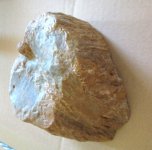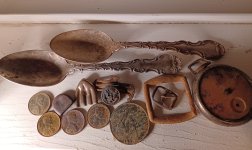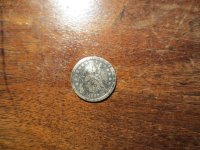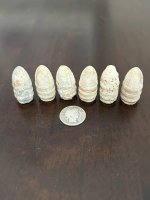Goldenplug
Hero Member
- Jul 30, 2014
- 777
- 1,078
- Detector(s) used
- Garrett ace 250 8.5 x 11 dd coil, teknetics t2, sniper coil, dd coild, lesche digger, gator tool, garrett propointer.
- Primary Interest:
- All Treasure Hunting
Has anyone discovered methods for removing rust from glass using certain chemicals or other tested methods? I bought a product that claimed to do just that and I had very poor results. If you pry it off using instruments you risk losing glass as well sometimes as it’s so attached. Generally I use wood to try and pry it off but there’s often a residual amount of rust or it is so attached that prying it would do more harm than good. Thanks.







